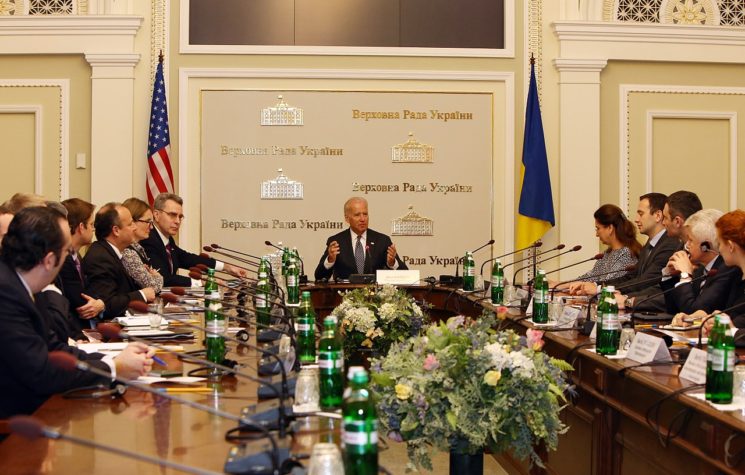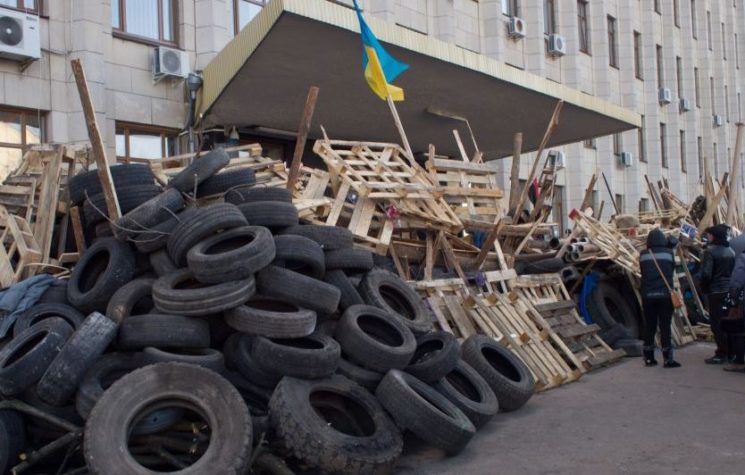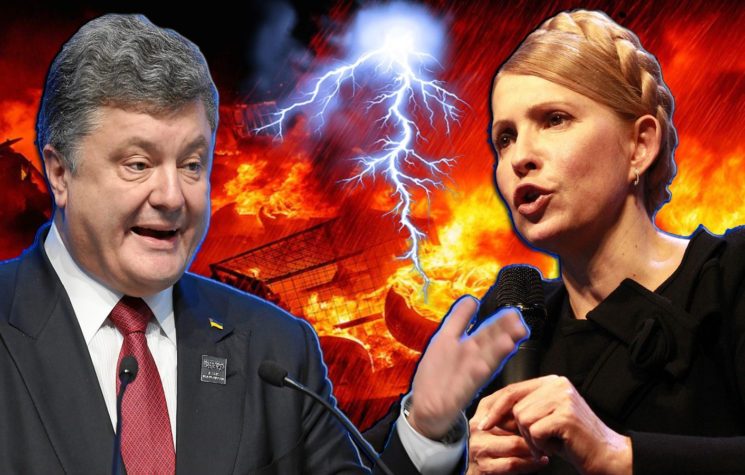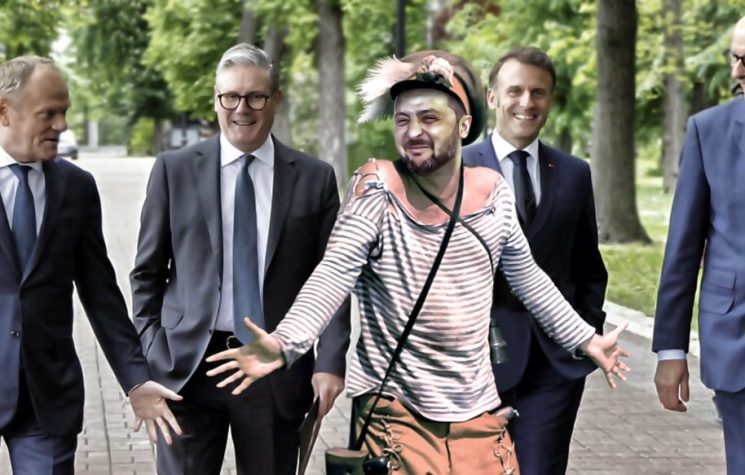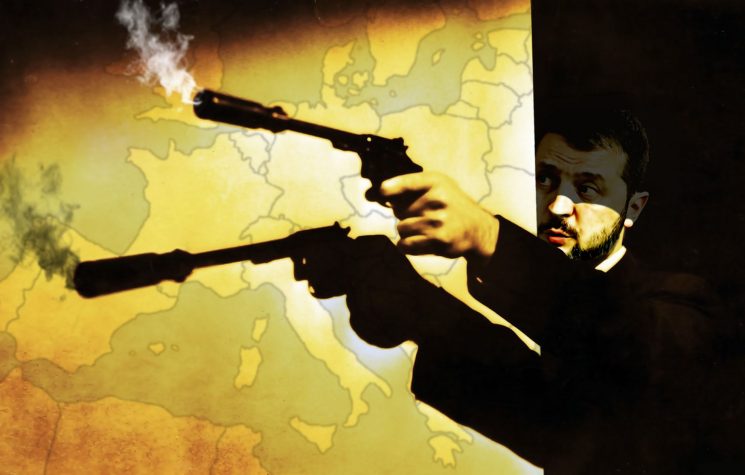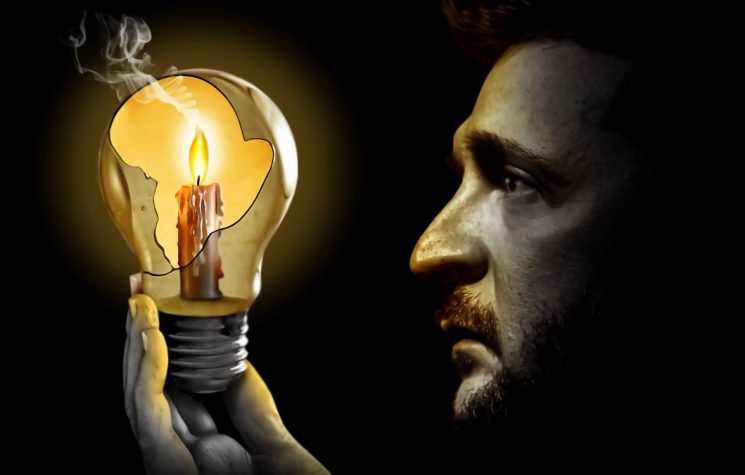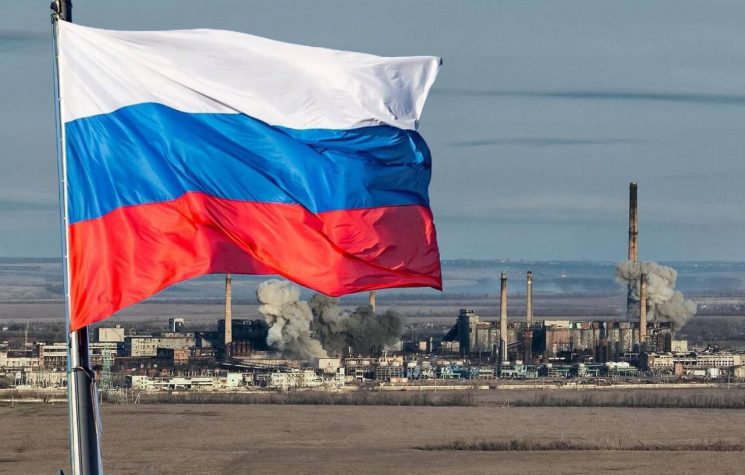The New York Times is not known for its wit, but an interview it recently published with the Ukrainian billionaire Ihor Kolomoisky was little less than side-splitting. A big bearish man who doesn’t believe in shades of gray – except when it comes to his own whiskers – Kolomoisky didn’t hold back when it came to American double-dealing and his belief that a rapprochement with Russia is the Ukraine’s only way out.
“They’re stronger anyway,” he said of Moscow. “We have to improve our relations. People want peace, a good life, they don’t want to be at war. And you” – i.e. the United States – “are forcing us to be at war, and not even giving us the money for it.”
That’s not what a parade of State Department personnel are telling the House intelligence committee these days. To a person, they agree that the US policy is tip-top, exemplary, brilliantly designed to help poor little Ukraine get back on its feet and fend off Russian aggression. Yet here was a Ukrainian oligarch saying the opposite: that Washington is using Kiev for its own selfish ends and that Moscow is looking better and better by comparison.
“You won’t all take us,” Kolomoisky said of NATO and the Ukraine’s long-standing bid for membership. “There’s no use in wasting time on empty talk. Whereas Russia would love to bring us into a new Warsaw Pact.”
Then came the kicker: if Kiev ends up joining forces with Moscow, then “Russian tanks will be stationed near Krakow and Warsaw. Your NATO will be soiling its pants and buying Pampers.”
Where the Polish-American strategist Zbigniew Brzezinski once advised using a pliant Ukraine to encircle Russia, Kolomoisky was now warning that Russia might join with the Ukraine in encircling Poland.
What makes this all the more extraordinary is that Kolomoisky is not some minor player, but the power behind the throne of an increasingly beleaguered Volodymyr Zelensky.
Zelensky, of course, is the comedian who began his climb to fame on a Kolomoisky-owned TV channel known as 1+1 and who then used his hit sitcom, “Servant of the People,” a show about an ordinary man running for president, to launch his own real-life presidential bid. Zelensky ran on an anti-corruption platform just as the fictional Zelensky did on TV, and he won handily just as he did on TV as well. It’s proof that if Paris was the surrealist capital of the world in the 1930s, Kiev is the same today.
The result is to make Zelensky doubly or even triply beholden to his former business partner. The New Yorker reports that he’s flown thirteen times by private jet to Geneva and Tel Aviv where Kolomoisky has homes. His fellow traveler on many of those flights, it adds, was Andriy Bohdan, Kolomoisky’s lawyer and now the president’s chief of staff. According to Ukrainian press reports, eleven members of Zelensky’s parliamentary faction may have accepted bribes of up to $30,000 to block an anti-corruption measure aimed at a Kolomoisky ally named Anton Yatsenko.
Then there’s Valeria Gontareva, former head of the Ukraine’s central bank, whom Kolomoisky’s supporters helped drive out of town in 2017. This was after she wrested away control of a financial institution known as PrivatBank from which Kolomoisky had allegedly looted $5.5 billion and all but driven into insolvency. After Zelensky took office in May, a car plowed into the 55-year-old Gontareva as she was crossing a street in central London, putting her in a wheelchair. After that, someone set fire to her son’s car in Kiev. Then someone torched her family home.
“Revenge,” Gontareva calls it. Zelensky stayed mum while one of his old 1+1 pals regaled audiences with a satirical song about a house burning down and a woman “weeping in London.” Suggesting that the attacks were fake, Alexander Dubinsky, a 1+1 veteran who is a member of Zelensky’s parliamentary faction, urged his 130,000 Facebook followers to begin a letter-writing campaign to get Gontareva fired from the London School of Economics where she is on a fellowship.
All of which suggests that Kolomoisky is not the type to forgive or forget and that Zelensky is not the type to rein him in. If so, then Kolomoisky’s comments about US-Ukrainian relations are the opinion not of a lone individual, but of a major faction of the Ukrainian ruling class.
This is worth keeping in mind as one impeachment witness after another pillories Donald Trump for supposedly undermining the Ukraine. Based on Kolomoisky’s remarks to the Times, it’s not Trump who’s responsible for the Ukrainian disaster, but decades of US policy. By pumping in $5 billion to “insure a secure and prosperous and democratic Ukraine,” as former State Department boss Victoria (“Fuck the EU”) Nuland put it, the US triggered a cascade of events that were little short of catastrophic. It encouraged the Nazi-spearheaded 2014 Euromaidan coup, which took a weak state and rendered it even weaker by triggered a parallel revolt in the Russian-speaking east. It tossed out a corrupt pro-Russian president named Viktor Yanukovych and brought in the pro-American president Petro Poroshenko, who may have been even worse. Now it has brought in Zelensky, a nice guy who may well prove to be the most disastrous of all because he seems to be little more than a stand-in for an oligarch so outrageous that he puts all other oligarchs to shame.
It’s not as if the experts weren’t warned. Back in 2014, when the New York Times was celebrating Kolomoisky as a hero of the battle against anti-Semitism, the liberal Israeli daily Haaretz described him much more accurately as a crude mob boss who spews profanities and insults; who keeps a massive shark-filled tank in his office so he can toss in live shrimp and watch how visitors react to the resultant feeding frenzy, and who was once spotted wearing a T-shirt with the inscription “Zhidobandera” – a double insult aimed at Jews (“Zhid” is an ethnic slur) and Ukrainian nationalists (known as “Banderovtzi” by opponents because they worship the World War II Nazi collaborator Stepan Bandera).
Vladimir Putin issued a similar warning around the same time. Kolomoisky’s crookedness, he said, was “unique.”
“He even managed to cheat our oligarch Roman Abramovich two or three years ago,” the Russian president observed of the billionaire owner of England’s Chelsea soccer team. “Scammed him, as our intellectuals like to say. They signed some deal, Abramovich transferred several billion dollars, while this guy never delivered and pocketed the money. When I asked, ‘Why did you do it?’ he [Abramovich] said, ‘I never thought this was possible.’”
But who listens to Putin? And who bothers to read Haaretz? If the Russians said that Kolomoisky was a no-goodnik, the State Department assumed that he had to be the opposite. But now that he turns out to be precisely the gonif that Putin said he was, the experts are blaming Trump, Zelensky, and Russia – everyone and anyone, that is, except themselves.








